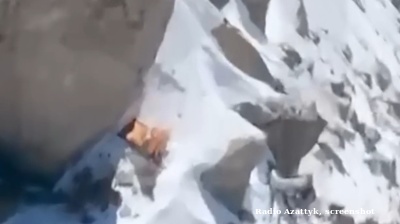Belarus is walking a diplomatic tightrope, trying to strengthen ties with emerging powers like BRICS while quietly seeking to ease Western sanctions.
Amid renewed geopolitical manoeuvring between East and West, Belarus is intensifying its push for full membership in BRICS as part of a broader effort to reposition itself on the global stage and offset mounting Western pressure.
Speaking after the BRICS summit in Rio de Janeiro, Belarusian Foreign Minister Maxim Ryzhenkov said Minsk remains committed to advancing from its current partner country status, which it obtained in January 2025, to full membership in the bloc.
“We are grateful to the BRICS member states for the support they have provided at this stage, but our ultimate goal remains full membership in BRICS. We will continue to work toward this and look forward to the association’s further expansion,” Ryzhenkov told BelTA, Belarus’s state-run news agency.
The remarks underscore President Alexander Lukashenko’s strategy to reposition Belarus as a key interlocutor between East and South – particularly amid ongoing isolation from the West following crackdowns on dissent and Minsk’s alignment with Russia’s war in Ukraine.
But the timing of the statement is striking. It comes just weeks after U.S. Special Envoy Keith Kellogg’s unannounced visit to Minsk, a move that has prompted a sharp response from Belarusian pro-democracy leader Svetlana Tikhanovskaya and divisions within the fragmented opposition.
“Lukashenko has to be punished, not rewarded,” Tikhanovskaya told Politico in a July 7 interview, warning against the “normalisation of the trafficking of political prisoners” in exchange for diplomatic concessions.
“We must not normalize the trafficking of political prisoners, when people are released for some concessions from your side, softening of sanctions or publicity, and then new political prisoners are taken,” she said, in reference to the release of 14 detainees believed to be linked to Kellogg’s visit.
A diplomatic balancing act
While Ryzhenkov highlighted Belarus’s growing engagement with BRICS parliamentary forums and youth programmes, characterising participation as “an investment in the future”, analysts say Minsk is simultaneously leveraging international platforms – including back-channel diplomacy with the US – to ease sanctions pressure, particularly on sectors such as potash, aviation and finance.
Belarus’s outreach to BRICS, framed as part of a broader shift toward non-Western alliances, aligns with Ryzhenkov’s rhetoric on global governance reform.
“This is a necessary condition for building an equitable, multipolar system of international relations,” he said. “We stand in full solidarity with the Brazilian chairmanship and share its position on the need to consistently defend multilateralism… amid growing polarization and the threat of global fragmentation.”
Opposition divided, West wary
Inside the opposition, however, unity over how to engage with Lukashenko is fraying. While Tikhanovskaya remains committed to sanctions and pressure, others – including relatives of political prisoners and former members of her own cabinet – believe limited engagement with the regime may be the only viable route to securing further releases.
One prominent figure, Yury Vaskrasenski, a former political prisoner who now speaks in support of negotiations with the state, hinted that economic concessions could unlock the release of high-profile detainees. “If the sky opens up, (Nobel Peace Prize laureate) Ales Bialiatski will immediately be released,” he told human rights advocate Leanid Sudalenka, alluding to the EU’s 2021 air travel sanctions imposed after Belarus forced down a Ryanair flight carrying opposition figures.
Yet the lack of transparency surrounding Kellogg’s visit has caused alarm in neighbouring Lithuania, where parliamentarians have questioned whether U.S.-Belarus talks are being conducted behind their backs.
“We need to know whether negotiations are being conducted behind our backs and whether we ourselves have become the subject of bargaining,” said Zigimantas Pavilionis, a member of the Lithuanian parliament’s Foreign Affairs Committee.
A bid for legitimacy
For Belarus, full BRICS membership would mark a symbolic geopolitical realignment, reinforcing Lukashenko’s image as a regional strongman with international alternatives to the West. But it could also serve a more immediate purpose: demonstrating credibility to BRICS members – especially Russia and China – while simultaneously positioning Belarus as a willing negotiator to Washington.
Whether that dual-track diplomacy succeeds remains to be seen. While BRICS expansion has gathered momentum, questions about the bloc’s coherence and criteria for new members persist. Belarus’ authoritarian track record, economic fragility and strategic dependency on Moscow may yet prove a hurdle.
What is clear is that Belarus is navigating between isolation and integration – seeking leverage wherever it can. Whether through BRICS summits or discreet deals in Minsk, Lukashenko’s government is playing both East and West in a high-stakes bid for survival, legitimacy and economic relief.
News

Russia orders emergency operation in race to save mountaineer trapped on Kyrgyzstan’s highest peak
Top official responds to desperate appeal from climber Natalia Nagovitsyna’s son who believes she is still alive.
_1756222537.jpg)
End of Bolivia's leftist era leaves Chinese and Russian lithium deals in limbo
Bolivia’s October presidential run-off has become a contest not only between two political traditions but also over the management of the country’s vast but underdeveloped lithium resources.

UPDATED: Kosovo gets parliament speaker but months-long political stalemate persists
Prolonged political deadlock had prevented Kosovo's assembly from functioning and blocked the formation of new state institutions since the February general election.

Turkey’s “fast lane” transport minister hit with motorway speeding ticket
Abdulkadir Uraloglu posted video of himself driving at 225 km/h, with clip set to folk music and Erdogan speeches on infrastructure.




